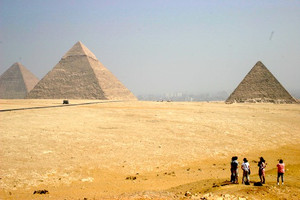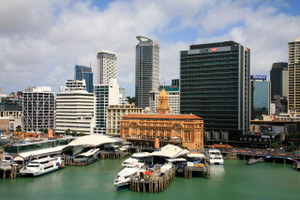
There’s just something alluring and mystical about Iceland, something that grabs a hold of our imagination and refuses to let go. It’s also one of the most beautiful countries in the world offering a myriad of unusual travel experiences; from viewing the Northern Lights, to soaking in a natural hot springs and snowmobiling up a glacier being just a few. So if you are keen to head over there and see what all the fuss is about, we’ve put together some information to help you make your plans.
About Iceland
Iceland an island in the North Atlantic, sitting 800 kilometres northwest of Scotland and 970 kilometres west of Norway, with its northern coast just below the Arctic Circle. It’s a country of extreme geological contrasts commonly known as “The Land of Fire and Ice”, home to some of the largest glaciers in Europe, and some of the world’s most active volcanoes. Remember the 2010 eruptions of Eyjafjallajökull, which caused enormous disruption to air travel across western and northern Europe for an initial period of six days in April 2010? Apparently there is a volcanic eruption every four years on average. Iceland is also a land of light and darkness with long summer days offering almost 24-hours of sunshine, offset by short winter days with only a few hours of daylight. It’s a relatively small country at just 103,000 square kilometres in size, making it about the size of US state of Ohio, and it is one of the few places in the world where you can see two tectonic plates meet on the earth's surface. Iceland is being divided into two by the Eurasian and the American plates, with the dividing line running straight through the heart of the country.
About Reykjavík
Home to about 320,000 people, around 60 per cent of Icelanders live in and around the capital, Reykjavík. It is the Northernmost capital on earth, and a cosmopolitan and friendly city famous for the colourful roofs of its houses and a stunning natural backdrop. Around a quarter of the city comprises dedicated open spaces, which means there are plenty of outdoor activities to enjoy during your visit from horse-riding to playing golf, but it’s also culturally rich, with a healthy lineup of museums, art galleries, cafes and bars. It’s a pedestrian friendly city boasting pretty parks, and views from literally everywhere, including from the towering hilltop Hallgrimskirkja church, and from the Perlan platform, perched high on a hill south-east of the city centre. Another must-do is having a soak in one of the city’s outdoor geothermal pools, with the largest being Laugardalslaug.
Getting There
Iceland is as far away from Australia as it can be, so your main two travel choices in terms of getting there are to fly across Asia to Europe and from there to Iceland, or to fly to the west coast of the United States, across the USA and from the east coast of USA to Iceland. Either way it takes a long time, and it won’t come cheaply. The main airline to serve Iceland is Icelandair, although a number of other carriers fly into Reykjavík including Austrian Airlines (which is part of the Star Alliance network), Delta, Lufthansa, and SAS along with local budget carriers including Vueilng. If you’re travelling on an Australian passport, you won’t need a visa.
When To Visit
Iceland is a paradise for lovers of the great outdoors, with pure air, crystal clear water and unspoilt nature some of the main tourist attractions. However each of the four seasons has something different to offer. Although the temperature in is milder than you might expect, it is still somewhat cold. The average temperature in Reykjavík is around 1-2°C during the winter, although can drop down to -10C to go up to 10C, and it is around 12C in summer, although it can drop down to around 7C and go up to 25C. If you’re not a fan of really cold weather, the best time to visit is during the European summer from June to August, but the weather changes all the time, hence the popular joke 'if you don't like the weather, wait 5 minutes' when you're in Iceland.
The Weird And The Wonderful
Beer remained illegal in Iceland until 1989, and strip clubs were banned in 2010. Icelanders also have the longest work week in Europe, at 43.5 hours, and the Icelandic language remains unchanged from ancient Norse. Iceland was one of the last places on earth to be settled by humans, and today owning a pet snake, lizard or turtle is against the law. The country also doesn’t have quite a few things including forests, an army, navy or air force, mosquitoes and McDonalds. The police don’t carry guns and crime is very low, with violent crime is practically nonexistent. In Iceland raw puffin heart is considered a delicacy.
What To See And Do
Beyond Reykjavík you'll discover a sparsely populated countryside that's rich in beautiful landscapes from flowing lava fields and rugged mountains, to highlands and glaciers. Due to its proximity to the Arctic Circle, many travellers visit during the northern hemisphere winter, to enjoy the snow, and snow activities, as well as catch a glimpse of famous Northern Lights. Other unusual experiences to enjoy in Iceland include volcano treks, elf spotting, whale watching and adventure sports from skiing to sea kayaking and scuba diving. Visit Thingvellir National Park, and you can go diving or snorkelling between the two continents. And consider taking a cruise of Iceland with a growing number of mainstream and expedition cruise lines offering circumnavigation cruises, or cruises to Sweden, Greenland, Norway and the Arctic which stop en route.
Thermal Spas And Waterfalls
Mother Nature has blessed Iceland with the famous Blue Lagoon, an iconic geothermal spa where the water temperature remains a constant 40C year round, and it said to have a geothermal beach called Nautholsvik, where you can swim in cold seawater mixed with hot geothermal water. The country also has many stunning waterfalls with Glymur being the highest, Gullfoss being the easiest to reach from Reykjavík, and Seljalandsfoss being the most majestic.
-

The A-Ö of Reykjavik | Iceland Academy
As the capital of Iceland, Reykjavik is the natural starting p...
-

How to Travel Further | Iceland Academy
When you come to Iceland deciding what to do and see can be ki...
-

Eat like an Icelander | Iceland Academy
They say you are what you eat and here in Iceland, what we eat...
- By:
- Ben Hall












